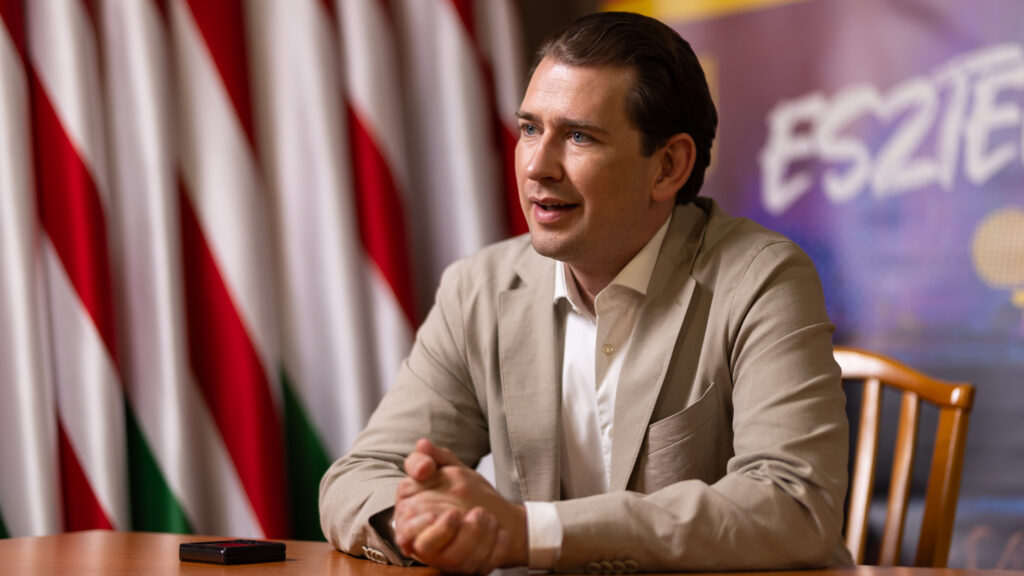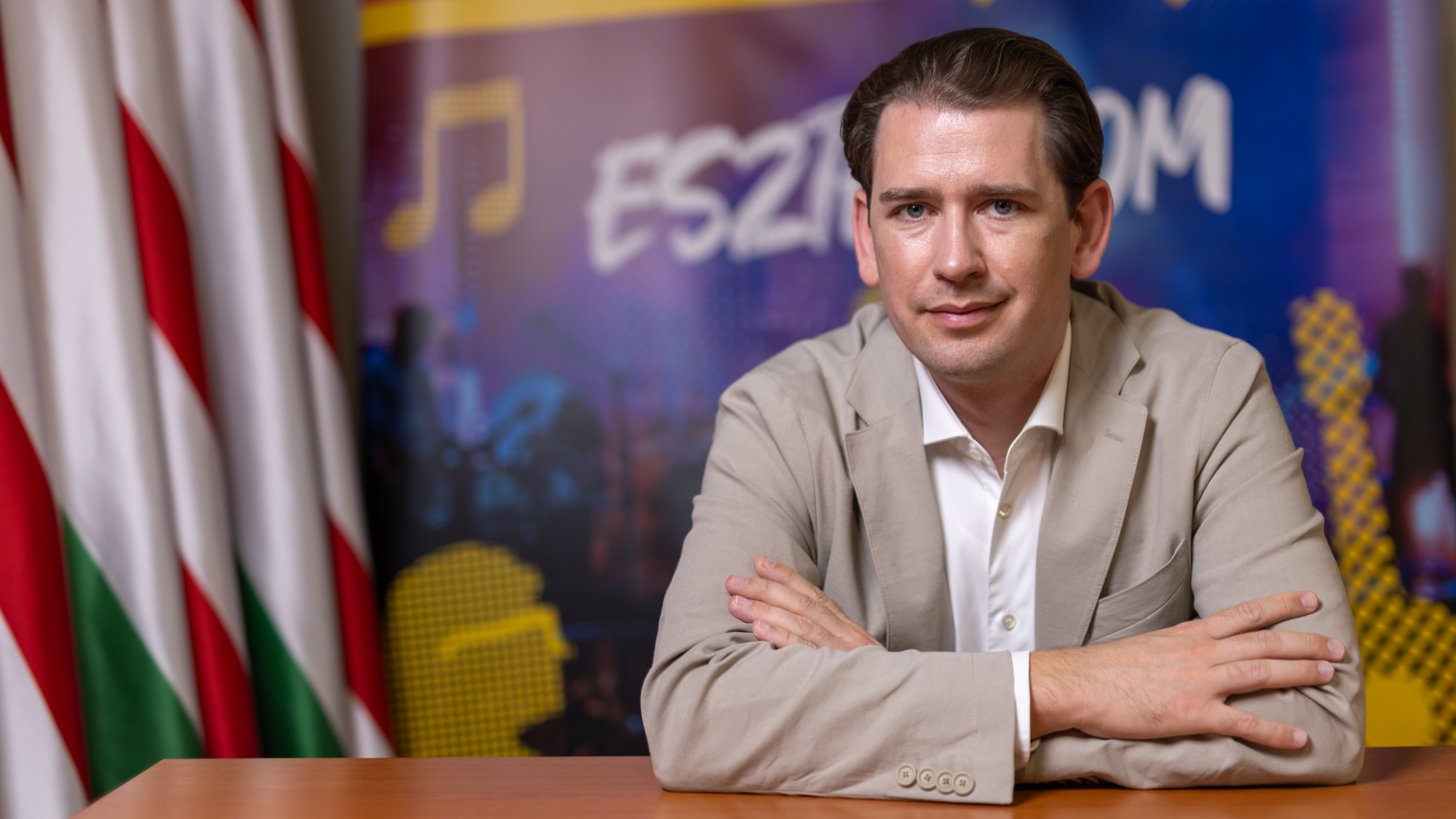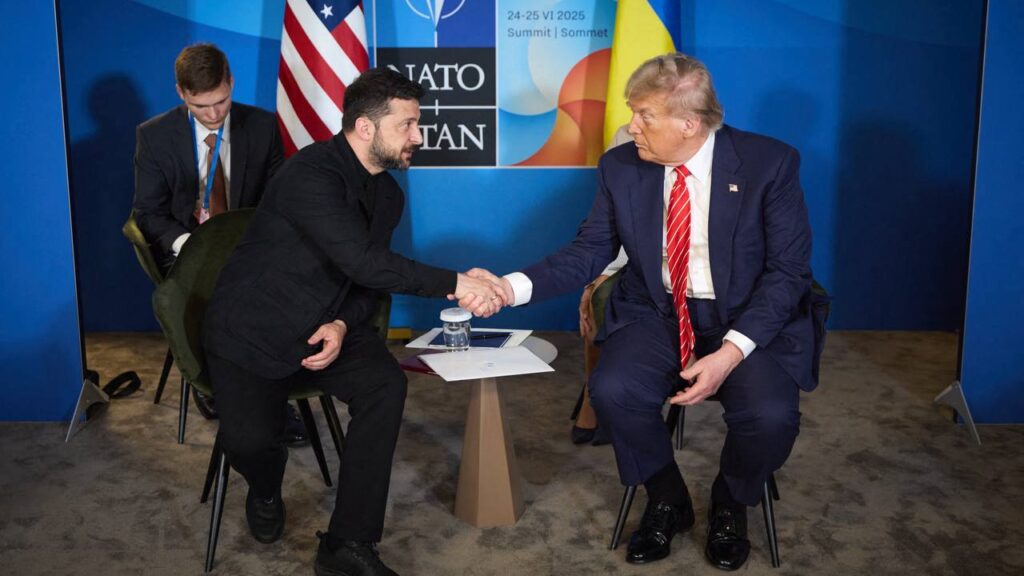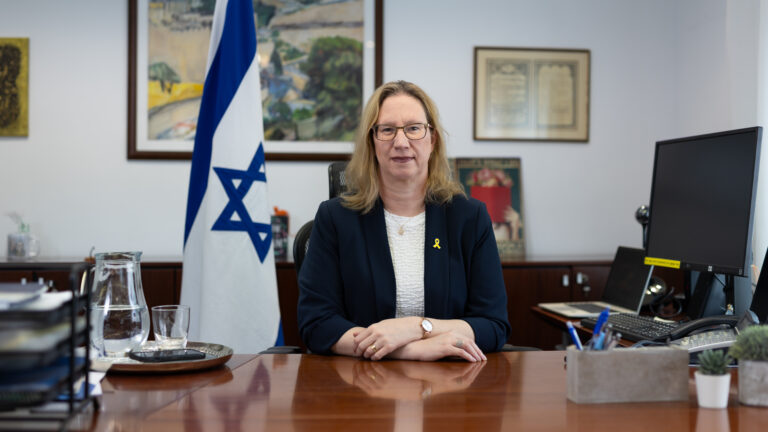Sebastian Kurz led Austria from 2017 to 2019 and from 2020 to 2021, becoming the youngest Chancellor in the country’s history. Since quitting politics in 2022 Kurz has been working as a global strategist for Thiel Capital, the California-based private investment company of American billionaire Peter Thiel. He was also appointed co-chairman of the European Council on Tolerance and Reconciliation in January 2022. In the same month he started an investment, management and consultancy firm, SK Management. Later that year, he co-founded an Israel-based cybersecurity company, Dream Security. Kurz travelled to Hungary to attend MCC Feszt organized by Mathias Corvinus Collegium, where he sat down for a chat with Hungarian Conservative. In the interview, he discussed the European Parliament elections in June, Hungarian Prime Minister Viktor Orbán’s peace mission and the EU’s competitiveness.
***
It’s been almost three years since you quit politics. Don’t you miss it?
I started at an early age and spent most of my professional life in politics. When I started to work in the Austrian government, I was 24 years old and served there for more than 10 years. It was always great to contribute and to serve my own country, but at the same time, it feels good to gain some new experiences now. During my time in office, I always talked a lot about entrepreneurship, now it’s exciting to be an entrepreneur myself.
In these three years, the world and Europe have changed significantly. War broke out in Ukraine, and in June, European elections were held. Although right-wing parties have generally been successful, there has been little change in the EU’s top positions. Can Brussels be changed at all?
Every election brings some sort of change, but these elections were not a revolution. It was not disruptive. It was a course correction, with centre-right and right-wing political groups gaining a significant number of seats in the European Parliament. At the same time, the Greens lost 25 per cent of their votes, which is substantial and indicates growing dissatisfaction with how we handle climate change, the woke movement, and the conduct of political debates in general. More and more people fear they cannot express their own opinions without the risk of being cancelled or put under pressure.
And many people are also dissatisfied with the way the EU is handling illegal immigration. You were in government during the migration crisis. Do you think the right-wing forces can make a difference regarding the EU’s migration policy?
Regarding migration, there have been some significant changes compared to when the migration crisis started. In 2015, I was foreign minister. At that time, I was pushing towards securing our borders to combat illegal migration and fight against smugglers. This stance was considered radical, fascist, extremist, or problematic by many politicians, which is ridiculous if you look at the situation now. Many politicians in the centre and even centre-left argue similarly today. Unfortunately, at the moment, it’s still just rhetoric. I hope there will be a push for not only better wording but also better policy on migration. We need to be open to highly skilled people who are essential, while simultaneously stopping illegal migration, especially illegal migration into our social welfare systems.

Leaders calling for stricter borders always face penalties in a way or another from Brussels, just like Viktor Orbán, who is consistently at odds with the European Union, now over his peace mission. Do you think the criticisms are justified?
There is no easy answer to that at the moment. However, given that hundreds of people are killed every single day, it is necessary to agree on a ceasefire and finally a way to end this war. Keeping diplomatic channels open is crucial in this regard. Therefore, I’m always in favour of finding solutions on the negotiation table and not on the battlefield.
Hungary currently holds the rotating presidency of the EU, with a focus on increasing competitiveness. As an entrepreneur, how do you see the current state of EU competitiveness?
To be honest, unfortunately, most of the innovation is taking place in other parts of the world, not in the European Union. I believe there isn’t enough focus on working hard to remain competitive on a global scale. Many people seem to forget that without competitiveness, there is no economic success; and without economic success, there are no social welfare systems or the living standards we are accustomed to. There are many regions in the world where people are genuinely hungry for success. I hope the European Union will wake up soon, because right now, we are definitely losing ground at an enormous pace.
How can Europe get back on top?
First of all, it’s a question of political will and priorities. At the moment, there seem to be many priorities, ranging from transgender issues to the fight against climate change. However, the focus on making the European Union a competitive, attractive place to do business and fostering the best or most innovation in the world is not very high on the agenda.
Related articles:








